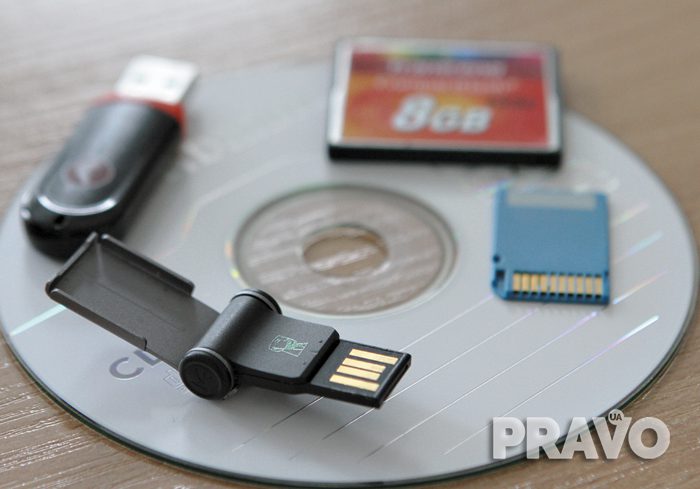Date of publication: 22 October 2019
Andrii Konoplia, Attorney at Law, Counsel, Insolvency Receiver
Source: Yurydychna Praktyka
Currently the effective Ukrainian legislation stipulates for the possibility of the party wishing to substantiate its position to lodge digital evidence and electronic copies of written evidence to court within the pending commercial court proceedings.
Law on electronic form
Article 96 (1) of the EPCU determines that digital evidence is represented by information in electronic (digital) form containing the data about the circumstances that are relevant to the case, in particular, electronic documents (including text documents, graphics, plans, photographs, video and audio recordings, etc.), websites (pages), text, graphics and voice messages, metadata, databases and other data in electronic form. Such data can be stored on portable devices (memory cards, mobile phones, etc.), servers, backup systems, and other electronic data storage locations (including the Internet).
Pursuant to Article 96 (3) of the EPCU, participants to the process have the right to submit electronic evidence in paper form subject to certification in the manner prescribed by law. A paper copy of the digital evidence cannot be considered a documentary written evidence.
Article 91 (3) of the EPCU establishes that the parties have the right to submit written evidence in electronic form certified by an electronic digital signature, which is equated to a handwritten signature in accordance with the law. An electronic copy of a written evidence cannot be considered to be a digital evidence.
It should be noted that, according to sub-clause 17.1 of clause 1 of the Transitional Provisions of the EPCU, prior to the commencement of operation of the Unified Judicial Information and Telecommunication System (UJITS) the procedure of filing, registration and submission of procedural and other documents, evidence, as well as formation, storage and transfer of case materials shall be carried out in paper form.
Article 6 (4) of the EPCU stipulates that UJITS ensures the exchange of documents (the process of sending and receiving documents) in electronic form between the courts, between the court and parties to the case, between the parties themselves, as well as the registration of the court process and participation of the parties to the case in a videoconference meeting.
Pursuant to Article 42 (5) of the EPCU, documents (including procedural documents, written and digital evidence, etc.) are submitted to the court, and the procedural actions are carried out by the parties in electronic form through ESITS, except as otherwise provided by the Code.
Not in operation yet
As follows from the decision of the High Council of Justice dated 28 February 2019 the draft Regulation on the UJITS was returned to the State Judicial Administration of Ukraine for revision. The State Judicial Administration of Ukraine was offered to withdraw the notice on the establishment and operation of the UJITS.
Thus, the UJITS has not started functioning, and therefore the parties to the process, in fact, do not have the right to submit digital evidence (except for paper copies of such evidence) and electronic copies of written evidence.
Nevertheless, in practice it is not uncommon for the parties to provide evidence to the court on removable media drives (flash drives, external HDD/SSD, CD/DVD), and the courts accept such evidence. However, the person providing such evidence usually does not indicate that it is a copy of digital evidence and/or electronic copies of written evidence.
Let us assume that the Regulation on the UJITS is approved subject to the prescribed manner, and the UJITS comes into operation.
Pursuant to Article 42 (7) of the EPCU, if there is a binding obligation of a party to the process to send copies of the documents to other parties, such documents may be sent to such persons through the UJITS in electronic form, save to the extent that the pother party has no official e-mail address.
Article 80 (9) of the EPCU provides that if the evidence (other than physical evidence), which is submitted to the court, is sent or provided in advance by the person submitting it to other parties to the proceedings, the court shall not take into consideration relevant evidence if there is no confirmation of sending (providing) their copies to other parties to the case, except where the relevant party has this evidence at its disposal, or the volume of evidence is excessive, or they have been submitted to the court in electronic form, or are publicly available.
Analyzing the provisions of the above norms, it may be assumed that evidence in electronic form and copies of digital evidence are to be sent to participants to the process through the UJITS. In this case, the person submitting the evidence to the court in digital form is not obliged to provide the court with confirmation of sending the copies of such evidence to another party, as the data contained in the UJITS shall constitute the evidence of such sending.
But there is a logical question: what is to be done if a party to the proceedings does not have an official e-mail address in the UJITS? In accordance with Article 6 (6) of the EPCU, only the attorneys, notaries, private enforcement officers, insolvency receivers, court experts, state official bodies, local self-governing bodies and economic entities of the state and municipal sectors of the economy must get their official e-mail address registered in the UJITS.
For such persons, copies of written evidence and digital evidence are likely to be sent in paper form.
Pursuant to Article 96 (2) of the EPCU, digital evidence are to be submitted in the original or in electronic copies certified by an electronic digital signature.
Original evidence
Article 96 (5) of the EPCU stipulates that if a copy (paper copy) of digital evidence is submitted, the court may request the original electronic evidence from the relevant person at the request of the party to the case or subject to its own initiative. If the original electronic evidence is not submitted, and the party to the case or the court has doubts about the conformity of the submitted copy (paper copy) of the original, such evidence shall not be taken into account by the court.
An important question arises: what constitutes an original digital evidence? The Code of Civil Procedure of Ukraine contains no such definition.
Pursuant to Article 7 of the Law of Ukraine On Digital Documents and Digital Document Management an original digital document is represented by an electronic copy of the document containing mandatory particulars, including electronic signature of the author or a signature equivalent to a handwritten signature in accordance with the Law of Ukraine On Electronic Trust Services.
In my opinion, the term “digital evidence” is broader than the term “digital document”.
Let us assume that that a digital document is the document which is called a text document in Article 96 (1) of the EPCU.
But how is it to be determined what represents the original graphic image, plan, photo, video and audio, website (page), text, multimedia and voice message?
In my opinion, and based on a systematic analysis of the Law of Ukraine On Copyright and Related Rights and Article 96 of the EPCU, we may come to conclusion that the original electronic document is, in a sense, a work created by the author and recorded on certain physical data carrier.
If we take, for example, a web-site, it is quite obvious that the physical data carrier is represented by the server on which its source codes and databases are stored. According to IT experts, it is not always possible to expeditiously obtain information about the web-site owner. Therefore, it is not always possible to provide the original while providing a copy of the web-site page.
Let us assume that we are aware who the owner of the web-site is, but the hosting server containing the web-site’s source codes and databases is located in another country (on another continent). The situation becomes more complicated by the fact that the web-server hosts other information. In this respect a question may arise: will a non-resident be able to provide such a server and who will bear the associated costs?
According to IT experts, the concept of “original” in the digital world is not of concern in the sense as we know it. Global IT corporations often do not have the technical capabilities and do not strain themselves with determining the originality of a certain particular information, thus assuming that such a concept does not exist in the common sense of the word.

